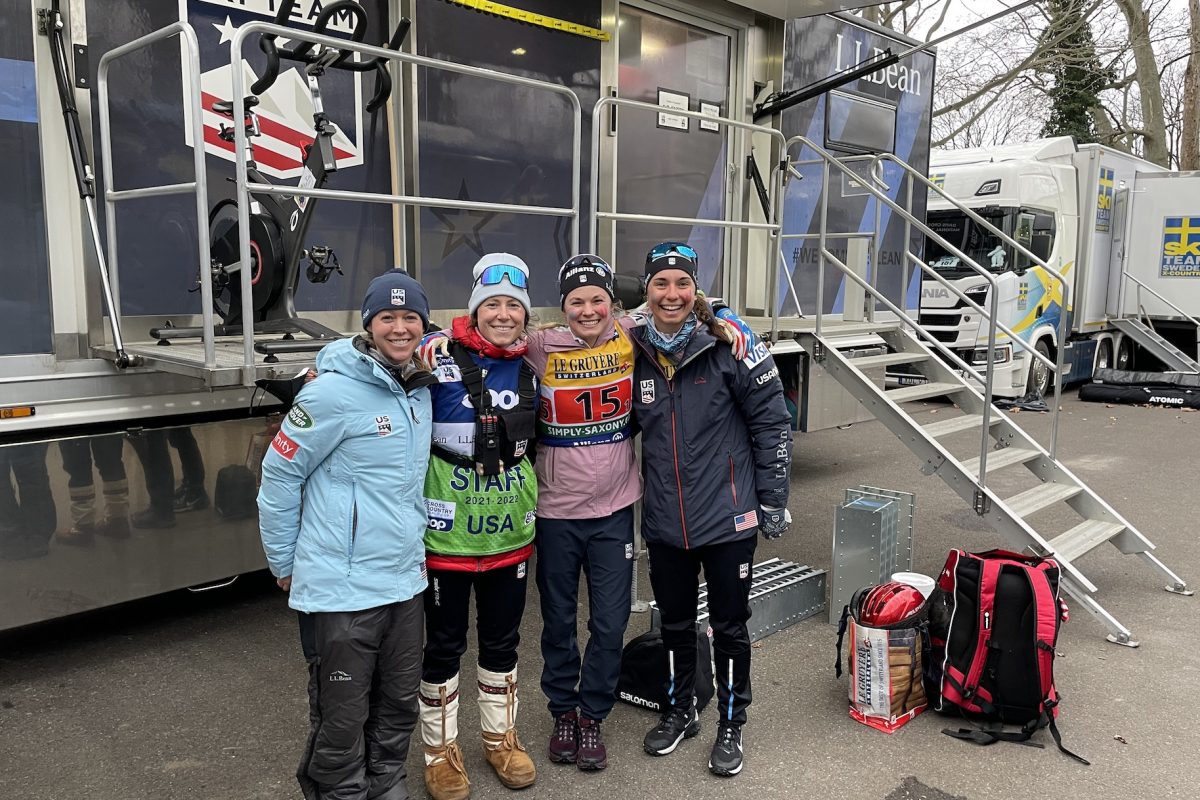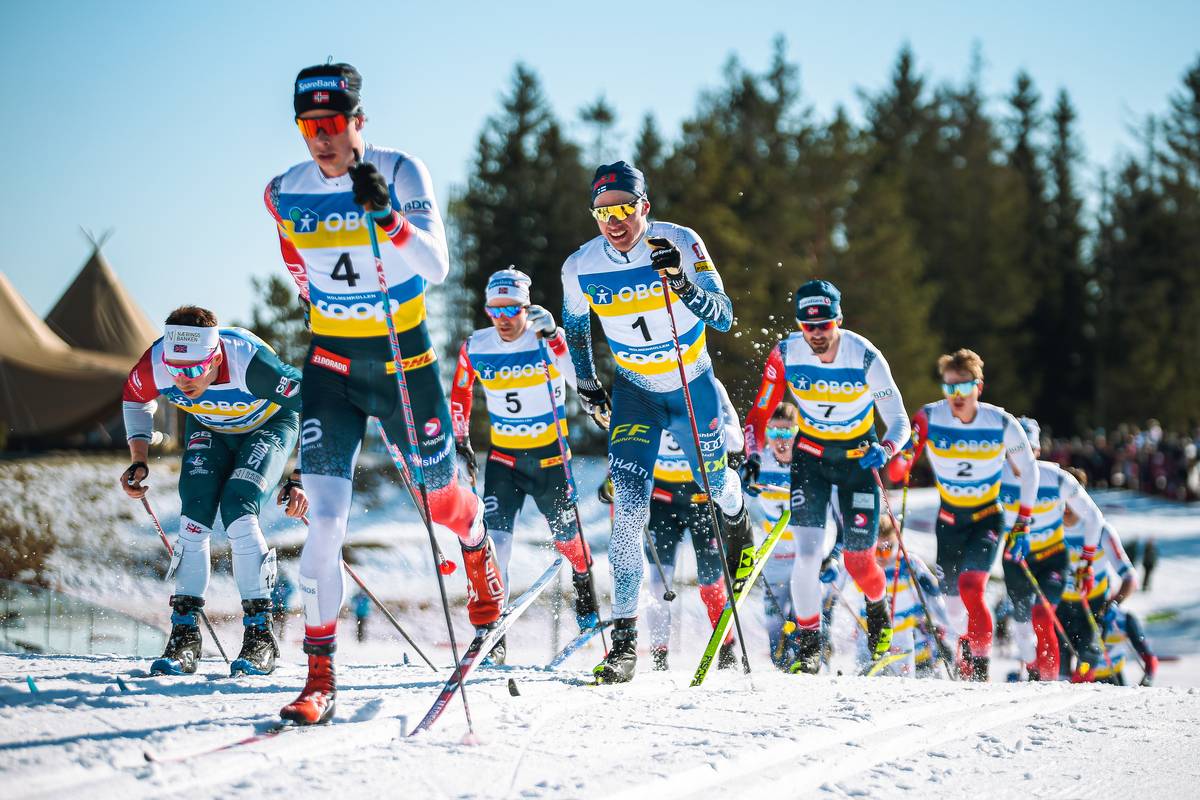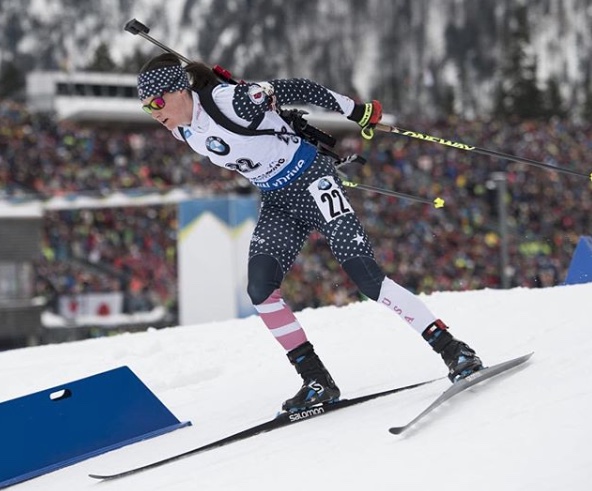
Having the season you hope for and actually having that season is the rarefied magic of sport.
“I am having the season I hoped for but didn’t expect,” US Biathlon’s Clare Egan said in a telephone call on Jan. 30th. “I got the balance right for the first time since I started training full time. Since for eight years — three of which were devoted to cross-country and five of which were devoted to biathlon. I never got the balance right between my training and my rest and my focus.”
In December at the Pokljuka, Slovenia IBU World Cup, Egan scored a career-best sixth place in the pursuit while skiing the fastest time of day. The season has been a benchmark for the thirty-one year old originally from Cape Elizabeth, ME. She is the highest ranked North American women on the World Cup, currently positioned 25th overall.
Reflective and cerebral, Egan took the time last Spring to gauge her future in the sport. It was this writer’s sense that after her final race at the PyeongChang Games Egan would pursue other opportunities — the grind, the up and down results taking their toll. Not having the season she hoped for, despite eternal optimism, had taken its course.
“The biggest thing that I didn’t predict was the liberation I felt having the Olympics behind me,” said Egan as she discussed her reasons for not retiring from elite level competition. “It allowed me to look on my sport with a fresh mindset that was no longer obsessed with meeting certain qualification criteria. But rather just about learning and improving and trying to be the best biathlete I can and doing it for fun, for myself. So I just thought I’ve worked so hard now I can have this sort of victory lap year that’s just for myself and with a real growth mindset.”
Egan’s commitment to another round of training and competitions were grounded in several notable changes at US Biathlon. Armin Auchentaller, a native of Italy, took over the coaching responsibilities for the U.S. women’s team. US Biathlon also changed their training paradigm to a camp focus rather than in-residence day to day training amongst the US Biathlon cohort. Based in Europe, Auchentaller and the women’s team gathered stateside for intermittent but intense windows of group training. Egan explained the model as two weeks in a camp, followed by a week of solo training and a week of rest and recovery.
“That worked so much better for me, so much better,” said Egan. “It enabled me to work way harder than I have before because it was a finite amount of time. It was like ‘ok you have twelve or fourteen days here and you are going to be doing triple sessions’, you know like two physical training sessions and an evening dry fire shooting session. I’ve really pushed the limits with my training but then I had two weeks when I was training on my own and if I had to, I often trained at 10:30 and 5:30. I slept in. I listened to my body. I practiced things I had been taught. I worked on stuff.”
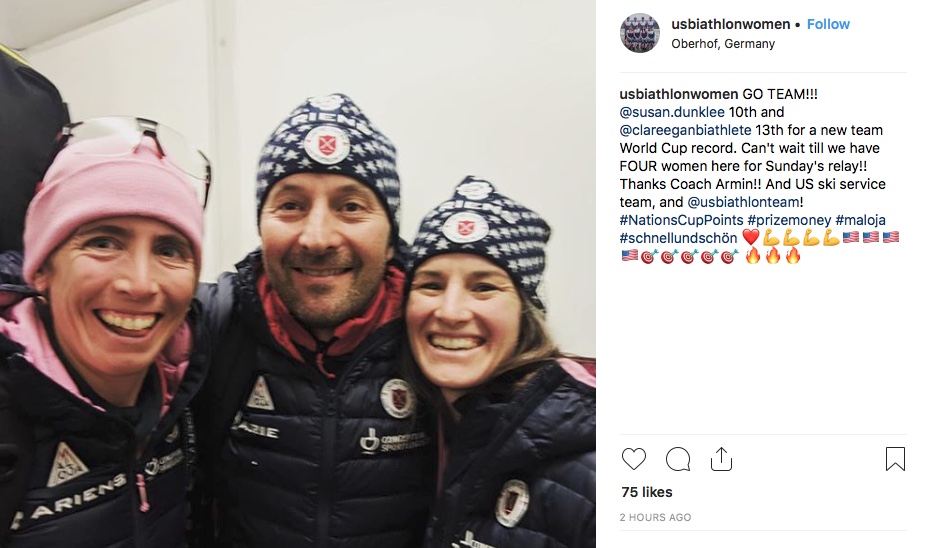
The nebulous “worked on stuff” was an atypical comment from Egan that she clarified. The “stuff” she worked on was remedying what she said was a lack of internalizing what she had been taught and learned. With the day-to-day team training model, Egan said she never could slow down to hard-wire new ideas and techniques.
“We were on every day all the time,” Egan described. “It was never like now you are learning and now you are going to practice what you learned. It was just always constant input.”
US Biathlon’s new system allowed Egan to decelerate and process what she was learning. And as is Egan, with her trait of drilling down into specifics, just as the conversation was drifting to a new topic she highlighted an ah-hah moment she had experienced. She relayed how in the past she had focused on meeting the minimum criteria – the game of doing just enough to make a championship team or bump up to the World Cup.
“I caught myself focusing on the minimum,” said Egan. “Like what is the bare minimum that I absolutely have to do to make this team. Anytime you talk about a qualification standard you are looking at the minimum. That’s the ground.”
If you are aiming high, and the hurdle is set low, an athlete runs the chance of doing just enough to clear the hurdle. Or, if things don’t align, just enough to trip the hurdle in an attempt to clear it.
“Then I overheard a meeting that one of my teammates had with a coach, and his team meeting was like ‘well my focus is this race I really want to win this race.’ I was like ‘oh my god’, my meeting didn’t sound at all like that. It was all about the minimum things that I want to do. Where his was, ‘here is my top goal and I am aiming for this and I am aiming high’. I didn’t really realize how damaging that was or that I was even doing it until I heard what an alternative might sound like.”
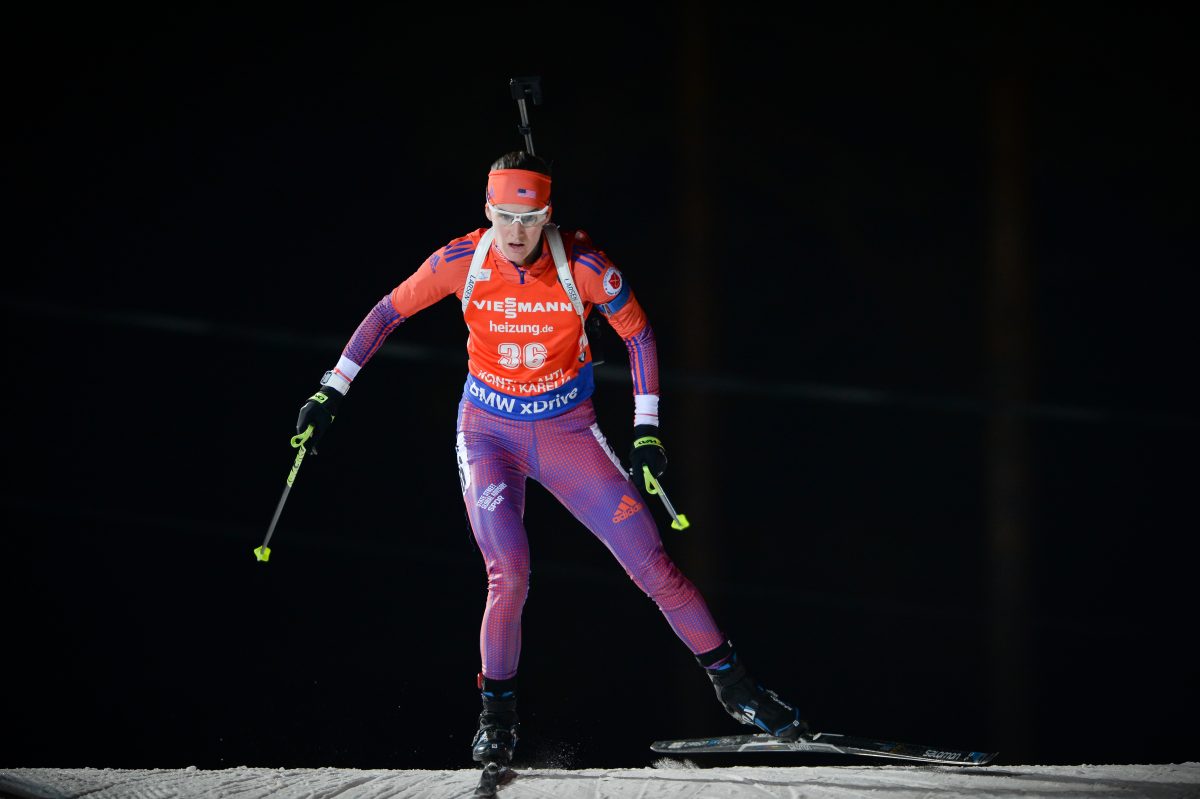
For now, Egan is focused well beyond the bare minimum and has embraced what she is calling a growth mindset where she imagines herself far surpassing the goal of barely grazing the hurdle. This is where the idea of envisioning the top goal takes on more critical import.
Last April, the IBU’s headquarters were raided. As a result, then IBU President Anders Besseberg and Secretary General Nicole Resch eventually stepped down. For years the IBU had been battered by a reputation of cronyism and corruption. A sporting federation tasked with protecting athletes and promoting sport appeared more concerned with payoffs rather than the bottom line of fair competition and working on behalf of athletes.
In March of last year, prior to the raid of the IBU headquarters in Austria, Egan was elected Chair of the IBU Athlete’s Committee. Her term will last until 2022 regardless of her competition status.
“Dedicated to engagement and to the mobilization of the athlete community and the ensuring that athletes are at the core of what our organization is doing,” is how Egan summarized her task and mission as the Athlete Chair.
What was not lost on Egan was the real impetus for change at the IBU: external examination and a blunt police raid.
The IBU has begun the arduous process of rebuilding from within. And its press office has released statements promoting the rebuild. There’s this: “IBU Executive Board Takes Further Action to Strengthen Anti-Doping and Good Governance”; and IBU Hosts Stakeholders Focus Groups to Guide New Strategic Plan”; New IBU Ethics Commission Meets For First Time; and this Feb. 5 release, IBU Executive Board receive encouraging updates in ongoing reform process”.
“I think there has been a lot of substance behind the good PR,” Egan said. “And I mean all of this is because the IBU got exposed. The IBU headquarters got raided by the police in April. Our, former president and former secretary general are under criminal investigation. We had to clean house. … We had to do that to save the organization. It didn’t come just because we were like ‘oh darn. We should change this for the better’. The organization was forced to change.”
Egan cited past proactive stances from IBU athletes like signing petitions and making public statements about doping reforms and relocating the planned 2021 IBU World Championships away from Tyumen, Russia as small yet successful measures. And most recently, the IBU Athlete’s Committee sent an early January letter to the WADA Executive Committee and the IOC’s Athlete Committee regarding RUSADA’s non-compliance status.
“I am really proud of what our committee did and it was not a public action per se but we made a pretty strong statement with all four signatures from the athlete committee colleagues on it and sent that to the WADA athlete’s committee and the IOC athlete’s committee prior to the WADA Executive Committee vote on January 22nd regarding RUSADA compliance,” said Egan. Our statement just mirrored the WADA athletes committee statement which was that non-compliance was the only acceptable outcome for athletes.”
(The WADA Executive Committee voted to maintain RUSADA’s in-compliance status.)
The athlete’s voice at the IBU has been further empowered under Egan’s leadership. In September at the IBU Congress, an athlete seat at the IBU Executive Board table was formally set aside for Egan as she serves as the current Chair of the IBU Athlete’s Committee.
Along with that reform, the IBU has commissioned an external review into the details of the April police raid and connections to the IBU leadership. According to Egan, an athlete representative also serves on that oversight body.
“We are in a good way,” Egan said. “And it is just important that as we continue making these improvements and athletes continue to have that oversight and continue to be involved and don’t lose sight of how important it is. Because what got us to the disaster of this past April, I guess, was that athletes were in the backseat.”
No surprise, Egan is in the driver’s seat helping forge that new path for the IBU. And she is committed to her own path and having the season she hoped for.
Egan races next on the IBU World Cup this Thursday at the Soldier Hollow venue in Midway, Utah.
Jason Albert
Jason lives in Bend, Ore., and can often be seen chasing his two boys around town. He’s a self-proclaimed audio geek. That all started back in the early 1990s when he convinced a naive public radio editor he should report a story from Alaska’s, Ruth Gorge. Now, Jason’s common companion is his field-recording gear.

